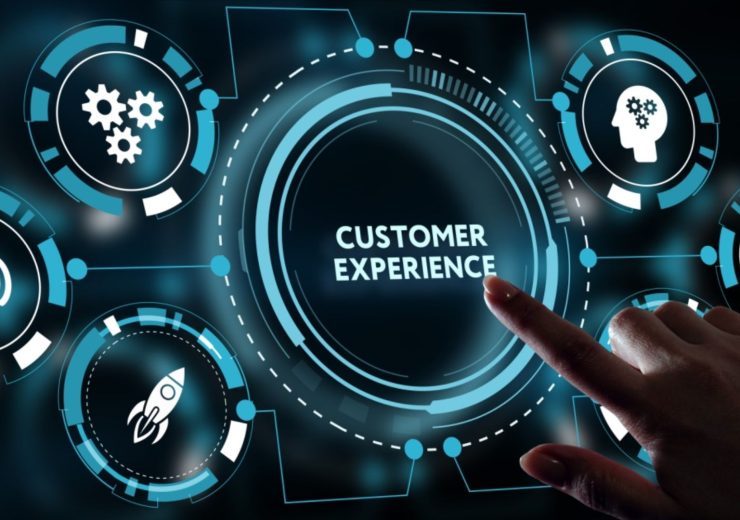Unlocking the Power of AI: What It Means for You and Your Career

Unlocking the Power of AI: What It Means for You and Your Career
Discover how Artificial Intelligence is reshaping industries, creating new roles, and offering unprecedented opportunities for professional growth.

Introduction
Artificial Intelligence (AI) is no longer a fringe concept reserved for tech giants and cutting-edge research labs. It has permeated every aspect of modern life, from the personalized recommendations you see on streaming services to the smart assistants on your phone. Beyond its societal impact, AI holds transformative potential for individual careers, opening new paths for skill development, innovation, and professional advancement. But understanding AI’s influence on your own trajectory requires more than mere enthusiasm; it necessitates a deep dive into how AI is being applied across different sectors, and what it means for your day-to-day job responsibilities, long-term prospects, and sense of professional purpose.
In this comprehensive guide, we’ll explore the various ways AI is intersecting with traditional roles, sparking new job categories, and challenging us to adapt. Whether you’re a seasoned professional contemplating the future or a newcomer eager to align your career with emerging technologies, this article will illuminate the evolving landscape of work in an AI-driven era. By the end, you’ll gain a clearer perspective on how to harness AI’s capabilities, identify market gaps, and future-proof your professional journey.
1. AI Basics: A Quick Refresher
AI encompasses a broad range of technologies that enable machines to perform tasks that typically require human intelligence. This includes Machine Learning (ML), where systems learn from data over time, and Deep Learning, a subset of ML that uses layered neural networks to recognize patterns in images, speech, and text. AI also involves natural language processing (NLP) for understanding and generating human language, and reinforcement learning for mastering complex actions, like controlling robotic arms or navigating virtual environments.
These subfields collectively drive innovations like chatbots that resolve customer queries, recommendation engines that predict user preferences, and self-driving cars that interpret real-world scenarios in real-time. Recognizing the various dimensions of AI helps clarify which skills or roles might benefit most from AI integration—or where new opportunities may arise for those willing to pivot.
2. Spanning Sectors: AI’s Broad Influence
AI’s reach is remarkable in its breadth. In healthcare, it aids diagnostics and personalizes patient care. In finance, it identifies fraudulent transactions and automates risk assessments. Manufacturers employ AI for predictive maintenance, cutting downtime by forecasting machine failures. Meanwhile, the education sector deploys adaptive learning platforms that modify lesson plans to meet individual student needs.
From small businesses to multinational conglomerates, organizations big and small are integrating AI into their workflows. Think advanced supply chain analytics in retail, chatbots in customer service departments, or data-driven marketing strategies—each of these areas leverages AI to boost efficiency, slash costs, and enhance customer satisfaction. Understanding the pervasiveness of AI demystifies why upskilling in AI-related knowledge can be a game-changer for your professional path.
3. New Roles and Fresh Opportunities
As AI automates repetitive or data-intensive tasks, it simultaneously frees up space for roles that require critical thinking, creativity, and emotional intelligence. For instance, while an AI model might handle initial data gathering or analysis, a human analyst interprets results in a nuanced way that aligns with strategic objectives. Similarly, with AI writing basic reports, content specialists can focus on deeper editorial and creative tasks.
On the technical front, roles like Data Scientist, AI Engineer, and Machine Learning Engineer are in high demand. But there’s also rising interest in positions such as AI Product Manager—professionals who can translate business needs into AI-driven features—or AI Ethicist, dedicated to preventing bias and ensuring responsible AI usage. These roles highlight a paradigm shift: rather than displacing human workers, AI is carving out specialized niches that blend domain expertise with technological fluency.
4. Upskilling: Preparing Yourself for AI Innovations
If you’re looking to position yourself advantageously in the age of AI, a combination of hard and soft skills will set you apart. Technical literacy is key—understanding how AI algorithms interpret data, how to evaluate their performance, and how to contribute to model-building processes can be invaluable, even if you’re not in a coding-focused role. Resources for such upskilling abound, from online courses specializing in Python-based machine learning to interactive platforms teaching neural network basics.
But let’s not overlook soft skills. The collaborative nature of AI projects means strong communication, adaptability, and emotional intelligence remain essential. Bridging the gap between technical teams and business stakeholders often requires clear articulation of AI’s value and limitations. Professionals adept at explaining complex concepts in understandable terms—and guiding data-driven strategies without overwhelming non-technical colleagues—can become linchpins in AI-powered environments.
5. Stories of Successful Career Pivots
Real-world examples underscore AI’s potential for career reinvention. Consider a marketing professional transitioning into a Growth Analyst role, leveraging ML tools to parse consumer data and orchestrate targeted campaigns. Or an operations manager who embraces predictive analytics to optimize supply chain routes, subsequently guiding teams with data-backed strategies. There are also journalists who adopt AI-driven research platforms, enabling faster fact-checking and deeper investigations.
In each scenario, the key takeaway is adaptability. These individuals identified the aspects of AI relevant to their domain, learned the necessary tools or conceptual frameworks, and integrated them into their existing expertise. The result was a reinforced professional identity, one that commands a higher value in a labor market increasingly shaped by digital transformation.
6. Addressing Common Fears and Misconceptions
A significant barrier to leveraging AI’s possibilities is the fear that machines will replace human roles wholesale. While automation can disrupt certain positions, it also generates new specialties that revolve around managing, interpreting, and improving AI systems. Another concern is that AI is an impenetrable domain requiring advanced math or coding skills. While these skills can be beneficial, many supportive roles—such as AI project management, business analysis, or domain-specific consulting—do not require deep technical coding prowess.
Realistically, embracing AI is more about continuous learning than singular expertise. Employers frequently support training initiatives to ensure employees stay abreast of new tools. Additionally, the community-led spirit of data science (with open-source libraries and collaborative forums) makes it easier to find guidance, resources, and mentors. Understanding AI in broad strokes—its strengths, its weaknesses, and its best use cases—helps dispel fears and opens up channels for productive engagement.
7. Embracing Responsible AI in Your Career
As AI becomes more ubiquitous, so does the onus to use it responsibly. Data privacy considerations, algorithmic biases, and job displacement issues demand careful thought. Many organizations now look for employees who not only know how to build or deploy AI systems but can also anticipate and mitigate potential negative outcomes. Understanding the ethical aspects of AI can be a professional differentiator, giving you a voice in policy-making and strategic planning.
In practice, being an advocate of ethical AI might mean questioning how data is collected, ensuring diverse representation in training sets, or championing transparent model decisions. This area of expertise intersects law, sociology, and technology, offering a chance for professionals from varied backgrounds to contribute significantly. Whether you’re a lawyer verifying GDPR compliance or a domain expert reviewing model performance against fairness metrics, your role in upholding ethical standards can be pivotal.
8. The Evolving AI Landscape: Where Do We Go from Here?
Predicting the exact trajectory of AI is challenging; however, several clear trends point to ongoing growth. Edge computing promises real-time AI insights at the local device level, reducing latency and opening new doors for advanced robotics, AR/VR experiences, and hyper-personalized consumer products. Quantum computing may eventually supercharge AI’s capabilities, tackling problems once deemed intractable—like decrypting complex data or modeling elaborate climate scenarios.
For professionals, this translates into a continuously evolving playground of opportunities. Fields like AI safety, AI-driven design, and specialized domain analytics will need both seasoned experts and newcomers eager to build their expertise. While re-skilling and adaptation are constant themes, the payoff is significant. Being at the nexus of AI development—whether as a scientist, an implementer, or an ethical guardian—places you in a community shaping the technological evolution of society itself.
Conclusion
“Unlocking the power of AI” isn’t just an abstract notion—it’s a direct call to align your career with one of the most transformative forces shaping our era. AI offers immense advantages, from automating mundane tasks to surfacing deep insights, yet it also requires conscious and ethical deployment. As industries pivot and roles evolve, professionals who proactively learn, adapt, and advocate for responsible AI stand to gain a competitive edge.
So what does AI mean for you? It means the chance to carve out a role that blends human ingenuity with analytical precision. It means updating skill sets that capture the attention of forward-thinking employers and forging novel paths in entrepreneurship or consulting. Most importantly, it means embracing a future where continuous learning is the norm, and where the synergy between human creativity and machine intelligence drives unprecedented innovation. By staying informed, engaged, and open to change, you’ll be well-positioned to thrive in a world where AI is not just another technology, but a fundamental layer of our collective reality.



